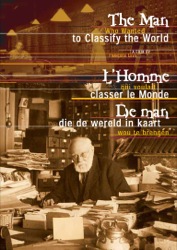The Man Who Wanted to Classify the World
This French film (with English and German audio tracks) is about Paul Otlet, a Belgian Utopian little known in America. Otlet invented an international classification scheme called Universal Decimal Classification used for books, photographs and other documents. He invented microfilm. He invented the ubiquitous index card catalog used in most libraries. But as he says in the film, “I think in terms of the universal” and his ambitions were much larger. Otlet began organizing existing international organizations into one grand inter-organization — the Union of International Organizations — which inspired the League of Nations. His one failure was to build an ultimate World City in Europe, but it was not for a lack of trying.
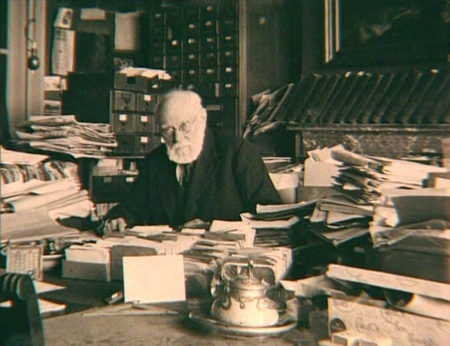
But his most amazing invention (in retrospect) was his invention of hypertext, multi-media, and the web. He didn’t use these words of course. He called it the International Network for Universal Documentation. In his 1934 “Treatise of Documentation” or “The book on the book” he lays it out:
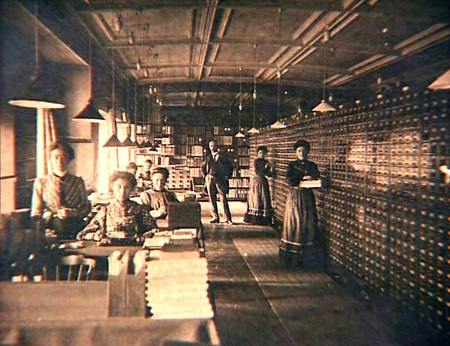
Before our very eyes an immense machinery for intellectual work is being constructed. This machinery will serve as a veritable mechanical and collective brain. A universal publication system condensing all of the fragmentary and individual data and kept constantly up to date must be assembled for each branch of the sciences and other activities. This network must link production centers distributors and users. Any person with data to be made known or propositions to present or defend will be able to do so. Or with a minimum of effort and a guarantee of quality safety will be able to obtain any information.
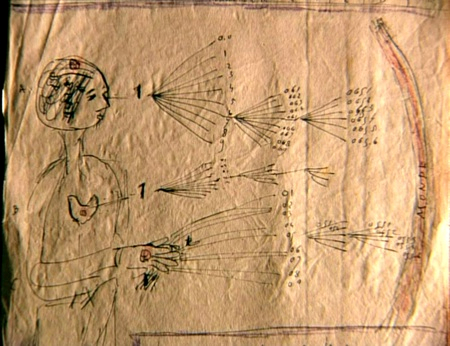
His concept of hyperlinking is illustrated in the film in this YouTube clip from this film:
Otlet outlined these grand visions of easily accessible knowledge and interconnected data many decades before Vannevar Bush and Ted Nelson first articulated them. And more importantly, he actually built an analog hypertext system. As this really amazing film makes clear, he collected and cataloged as much of the world’s bibliographic knowledge as he could and then cross-indexed it. Rows and rows of card trays. At his peak he had 17 million index cards, and a system of search and retrieval.
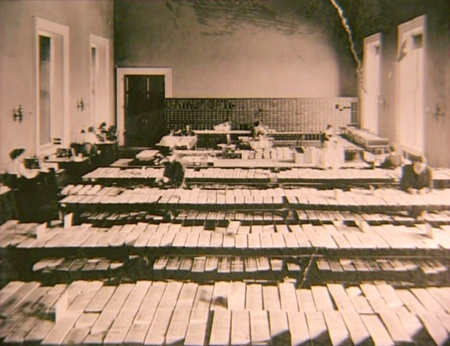
Later in the same monograph Otlet writes, “Phonographs, radio, television, telephone — these instruments taken as substitutes for the book will in fact become the new book, the most powerful work for the diffusion of human thoughts. This will be the radiated library, and the televised book.”
The universal book was a part of the universal city, which was a part of the universal repository of all human knowledge, or what he called the Mundaneum. This was to contain, “All books, all articles, all memories, all published information. These would become chapters, sections, lines of a single and immense book, the book of universal science. It is this one book made up of individual books that must be made available to all.”
Still his vision expanded. “This connection would be unaffected by distance…and would become an annex to the brain, a sort of appended exodermic organ.” Information architect Alex Wright calls Otlet our “forgotten forefather.” He offers a great closing quote from Otlet:
Everything in the universe, and everything of man, would be registered at a distance as it was produced. In this way a moving image of the world will be established, a true mirror of his memory. From a distance, everyone will be able to read text, enlarged and limited to the desired subject, projected on an individual screen. In this way, everyone from his armchair will be able to contemplate creation, as a whole or in certain of its parts.
Otlet’s early universalism was part of the reason he became forgotten and obscure. When the Nazis invaded Belgium in WWII they were intensely skeptical of his pacifism and internationalism. They destroyed his archive. Because he wrote in French, and none of his major works have yet been translated into English, his work was never part of the standard English history of the web.
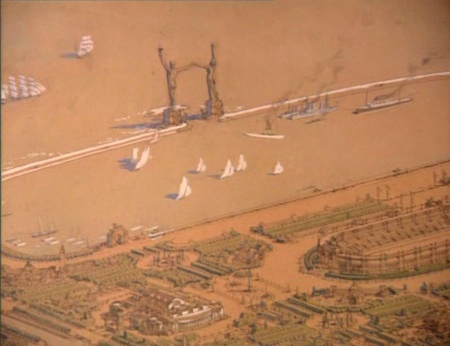
This short film will help to change that. A shorter documentary in French and English by his biographer, W. Boyd Raward, are available for free streaming on Open Source Movies, gives a few additional details of how his system worked, but this story is incomplete.
The Man Who Wanted to Classify the World
(L’Homme qui voulait classer le Monde)
By Francoise Levie
2002, 60 min.
Available from Memento Productions
(Note: The only way to purchase this film is to send 35 Euros in cash to the filmmakers. No credit card nor PayPal. It will take a few weeks delivery. Sadly I was unable to play this DVD on my DVD player. This may be because the video is in PAL, or more likely because I have an old player. It was viewable on a computer DVD.)


